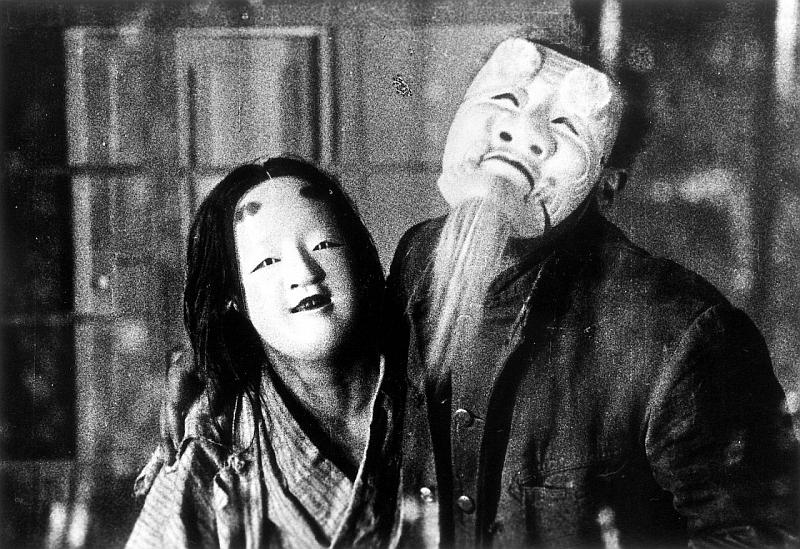On April 20th, “A Page of Madness” brought a silent realm of extreme ambiguity (to put it lightly) to the 20th annual Ebertfest. The experimental Japanese film, directed by Teinosuke Kinugasa, was released in 1926 and considered a lost film for four decades, before a print was discovered in 1971.
Set in an asylum, the silent feature does not have a clear narrative, and leaves countless questions for its audience while offering a completely sensory experience. The live musical score, written and performed by the three-person Alloy Orchestra, helped guide viewers’ emotions throughout.
The post-screening panel was moderated by University of Georgia film studies professor Richard Neupert and critic Nell Minow, and featured two members of the Alloy Orchestra, Terry Donahue and Ken Winokur.

Multiple interpretations: “The first five minutes can be interpreted about 18 different ways,” Neupert said.
Embrace the craziness: “Because the narrative is so fractured, we didn’t want to force a narrative onto something that wasn’t there, which is why we just opened up into chaos,” said Donahue.
Clarity vs. dreamland: “In Japan, you have to script for censorship. But what Kurutta Ichipeiji ended up doing was just transcribing the imagery. But just because it was written down doesn’t mean the interpretations are clear at all,” said Neupert.
A first: “The guy who wrote the screenplay went on to become the first Japanese author to win the Nobel Prize,” said Minow.
Just go with it: “This score was more improvisationally based than some of our past films. We just went with what we saw and did it (the way) it made us feel. And you heard how it made us feel: a little bit uneasy,” said Winokur.
One word for it: “When I watch this movie it’s confusing and frustrating, but I’m actually quite captivated,” said Winokur.
Another word for it: “It’s traumatizing,” said Neupert.
No need to be linear: “The director said that all of his stories had a beginning, middle and end, that he just didn’t put them in that order. He said if you want to understand my film, just put it on again in a different order,” said Neupert.
Which explains why … : “The alternate title was ‘A Page Out Of Order,’” said Winokur.
Madeline Galassi is a 2017-18 Roger Ebert Fellow at the University of Illinois College of Media.











